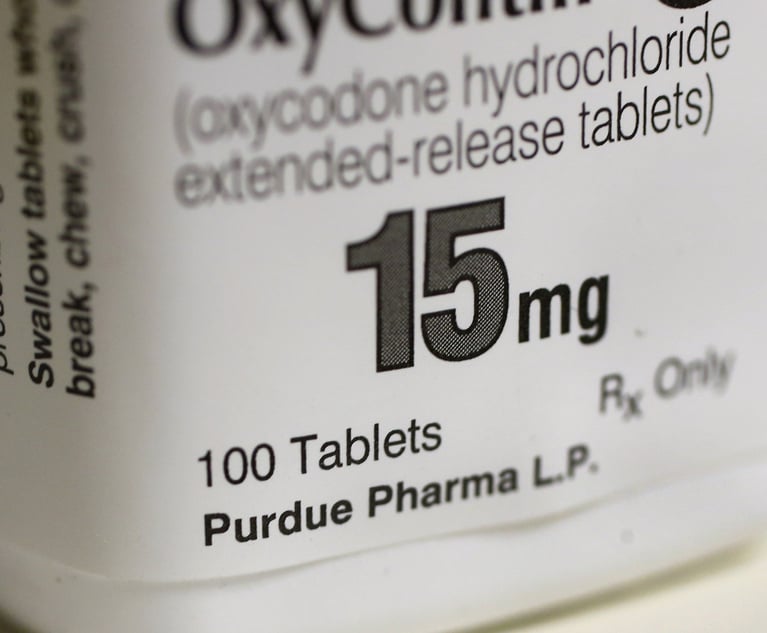How to Win Work From NY's Thriving Startup Sector: Three Proven Strategies
The firms that experiment with the strategies outlined in this article will be among those most likely to succeed.
March 11, 2019 at 02:35 PM
6 minute read

On February 4, when global research firm Savills released its Tech Cities in Motion survey results, it validated many law firms' decisions in recent years to aggressively pursue New York's technology-driven startup and investment sector. Among 30 cities worldwide, Savills announced, “New York has emerged as the premiere Tech City, overtaking San Francisco.” The report hasn't receive much coverage in the legal trade press, but as recruiters who have gained a wide-ranging knowledge of the local market while facilitating lateral partner moves, we've learned that law firms have played important supporting roles in Silicon Alley's ascension. We've identified three key strategies deployed by recognized law firm leaders in the space.
According to Tech:NYC, the city's so-called “technology ecosystem” now boasts a value of $71 billion. It's home to some 7,000 startups, backed by close to $40 billion in venture capital. And these days, every law firm in town wants a piece of the action. In one recent high-profile move, last October, New York-founded Kramer Levin Naftalis & Frankel recruited globally recognized IP and technology commercialization expert Harry Rubin. A former co-chair of Ropes & Gray's international practice group, Rubin has since launched Kramer Levin's IP and technology transactions practice.
Big Law's chase after New York emerging companies work began to gain steam in 2016. That's when Palo Alto-based Fenwick & West, the firm that incorporated Apple Inc. and handled the IPOs of Oracle and eBay, as well as numerous multibillion dollar deals for Cisco Systems and Symantec, opened a modest seven-lawyer New York office. Last year, having grown to 45 lawyers, Fenwick became the first to host an office in the Flatiron District, Silicon Alley's birthplace. Founded in 1972 by four New York City expatriates, Fenwick showcases the number one strategy other firms would do well to consider in seeking to expand their emerging companies practices: Link arms with entrepreneurs before their business ideas become the next big thing.
Consider, for example, Fenwick's six-year relationship with pharmaceutical cancer drug company Loxo Oncology. The firm began advising Loxo during its $33 million Series A financing back in 2013. This past January, Fenwick went on to represent Loxo in a friendly tender offer of $8 billion from Eli Lilly and Company. Fenwick's experience underscores that the upside potential of investing in erstwhile entrepreneurs and introducing them to prospective investors is practically boundless.
Two firms that proved that upside potential early on—and that continue to do so in New York—are Cooley and Goodwin, founded in the older technology corridors of San Francisco and Boston, respectively. Cooley, with a fleet of 200 startup attorneys, has for a decade ranked as the nation's number one law firm advising venture capital-backed companies in IPOs, and Goodwin has been recognized as among the top five. Both firms have achieved that status in no small part by offering entrepreneurs access to a trove of free market analysis, insights and resources. CooleyGo, launched in 2014, includes sample US and UK incorporation documents, offer letters, non-disclosure agreements and term sheets, as well as forms for running a business and ensuring compliance with cutting-edge website security protocols. Goodwin's founders workbench, begun in 2010, represents a similar platform, and serves as an extension of that firm's 230-lawyer emerging companies practice.
By affording entrepreneurs access to a wealth of accumulated expertise free-of-charge, Cooley, Goodwin and other industry-leading firms become magnets for early-stage work that's evolved into relationships that span companies' entire life cycles. Along the way, they've also captured legal work that's unrelated to company formation, financing and transactions, including tax, employment, and litigation matters.
In addition to experimenting on the free-expertise model, firms that are serious about expanding their startup practices should also be prepared to write off time and devise alternative fee structures. This principle applies even when pitching for work from a well-capitalized company. “We have spent a lot of time and effort on the transactional side with our outside counsel coming to alternative fee arrangements,” noted the former General Counsel of WeWork, Peter Greenspan, in an August 2018 interview with Law360: “With respect to most of the work that we do with our outside counsel, we either have a fixed-fee or capped-fee arrangements, and the way we're able to get those is really creating partnerships with our law firms.” (According to the Wall Street Journal, as of early 2019 WeWork had a valuation of $36 billion.)
In addition to being flexible on fees, firms should encourage associates as well as partners to support and network among the city's varied incubators and accelerators. Entrepreneurs Roundtable, which has fostered 178 technology companies with cumulative valuations exceeding $2 billion, is the largest, and there are more than 100 more. Event planners within these startup hubs are always looking for money to host a meetup, and by donating the cash equivalent of a few hours' partner time, firms can promote brand recognition and engender goodwill. Last year, for instance, Loeb & Loeb's New York office, sponsored a daylong event organized by Transact-Tech-NYC, where banking, retail and FinTech companies mingled with startup founders and VCs, to “build strategic relationships and secure new opportunities.” Similarly, the emerging companies and venture capital group at McCarter & English organized an event at which Female Founders Fund partner Suiton Dong, among others, led a discussion on diversity and inclusion in the local startup community.
Firm-backed outreach endeavors like these illustrate a third important tactic for attracting New York startup clients: Adopt an entrepreneurial culture that promotes diversity. The city's elite corporate law firms have historically mirrored the hidebound mores of Wall Street investment banks and Fortune 500 clients, but New York's young, technology-driven companies embrace an entirely different set of values. As Bloomberg Technology reported a little less than a year ago: “New York provides a contrast to Silicon Valley, which has been criticized for tunnel vision, being insular, out of touch with the rest of the country and overly homogeneous.” When it comes to winning over startups, law firms that have made genuine gains and support robust programs recruit and promote women, racial minorities and members of the LGBTQ communities enjoy a substantial advantage.
It's been three years since Mayor Bill de Blasio unveiled FutureworksNYC, an ambitious plan to create 100,000 high-paying jobs in automated manufacturing and robotics, cybersecurity, and health and life sciences, and the opportunities for law firms to tap into New York's thriving technology sector have never been greater. The firms that experiment with the strategies outlined above will be among those most likely to succeed.
Keith Fall and Ross Weil are partners with the New York-based legal recruiting firm, Walker Associates.
This content has been archived. It is available through our partners, LexisNexis® and Bloomberg Law.
To view this content, please continue to their sites.
Not a Lexis Subscriber?
Subscribe Now
Not a Bloomberg Law Subscriber?
Subscribe Now
NOT FOR REPRINT
© 2025 ALM Global, LLC, All Rights Reserved. Request academic re-use from www.copyright.com. All other uses, submit a request to [email protected]. For more information visit Asset & Logo Licensing.
You Might Like
View All

NY Ready to Reopen Claim Against Purdue Pharma, If 60-Day Negotiating Window Closes Without Accord


Ready to Meet the Moment: Data Privacy and Cybersecurity Concerns Echo Throughout Biotech and Synthetic Biology
10 minute readTrending Stories
- 1Is It Time for Large UK Law Firms to Begin Taking Private Equity Investment?
- 2Federal Judge Pauses Trump Funding Freeze as Democratic AGs Launch Defensive Measure
- 3Class Action Litigator Tapped to Lead Shook, Hardy & Bacon's Houston Office
- 4Arizona Supreme Court Presses Pause on KPMG's Bid to Deliver Legal Services
- 5Bill Would Consolidate Antitrust Enforcement Under DOJ
Who Got The Work
J. Brugh Lower of Gibbons has entered an appearance for industrial equipment supplier Devco Corporation in a pending trademark infringement lawsuit. The suit, accusing the defendant of selling knock-off Graco products, was filed Dec. 18 in New Jersey District Court by Rivkin Radler on behalf of Graco Inc. and Graco Minnesota. The case, assigned to U.S. District Judge Zahid N. Quraishi, is 3:24-cv-11294, Graco Inc. et al v. Devco Corporation.
Who Got The Work
Rebecca Maller-Stein and Kent A. Yalowitz of Arnold & Porter Kaye Scholer have entered their appearances for Hanaco Venture Capital and its executives, Lior Prosor and David Frankel, in a pending securities lawsuit. The action, filed on Dec. 24 in New York Southern District Court by Zell, Aron & Co. on behalf of Goldeneye Advisors, accuses the defendants of negligently and fraudulently managing the plaintiff's $1 million investment. The case, assigned to U.S. District Judge Vernon S. Broderick, is 1:24-cv-09918, Goldeneye Advisors, LLC v. Hanaco Venture Capital, Ltd. et al.
Who Got The Work
Attorneys from A&O Shearman has stepped in as defense counsel for Toronto-Dominion Bank and other defendants in a pending securities class action. The suit, filed Dec. 11 in New York Southern District Court by Bleichmar Fonti & Auld, accuses the defendants of concealing the bank's 'pervasive' deficiencies in regards to its compliance with the Bank Secrecy Act and the quality of its anti-money laundering controls. The case, assigned to U.S. District Judge Arun Subramanian, is 1:24-cv-09445, Gonzalez v. The Toronto-Dominion Bank et al.
Who Got The Work
Crown Castle International, a Pennsylvania company providing shared communications infrastructure, has turned to Luke D. Wolf of Gordon Rees Scully Mansukhani to fend off a pending breach-of-contract lawsuit. The court action, filed Nov. 25 in Michigan Eastern District Court by Hooper Hathaway PC on behalf of The Town Residences LLC, accuses Crown Castle of failing to transfer approximately $30,000 in utility payments from T-Mobile in breach of a roof-top lease and assignment agreement. The case, assigned to U.S. District Judge Susan K. Declercq, is 2:24-cv-13131, The Town Residences LLC v. T-Mobile US, Inc. et al.
Who Got The Work
Wilfred P. Coronato and Daniel M. Schwartz of McCarter & English have stepped in as defense counsel to Electrolux Home Products Inc. in a pending product liability lawsuit. The court action, filed Nov. 26 in New York Eastern District Court by Poulos Lopiccolo PC and Nagel Rice LLP on behalf of David Stern, alleges that the defendant's refrigerators’ drawers and shelving repeatedly break and fall apart within months after purchase. The case, assigned to U.S. District Judge Joan M. Azrack, is 2:24-cv-08204, Stern v. Electrolux Home Products, Inc.
Featured Firms
Law Offices of Gary Martin Hays & Associates, P.C.
(470) 294-1674
Law Offices of Mark E. Salomone
(857) 444-6468
Smith & Hassler
(713) 739-1250






